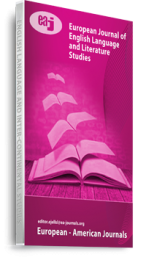Ahmed Yerima’s Abobaku is a drama that explains Yoruba cosmological belief in the concept of a scape-goat who dies to accompany Alaafin and other Yoruba Kings to the ancestral world.Despite its significance to Yoruba cosmology, Yerima’s Abobaku has not been given a full-blown pragmatic study. This paper therefore attempts to fill this existing gap by examining the practs of metaphor in it. Modified model of Mey’s (2001) pragmeme and Steen’s(2008) deliberate metaphor theory were used as the theoretical base of this study. The findings revealed that there are deliberate conceptual mappings of a human as a beast, a sacrificial lamb, and a saviour ; human’s life as a journey, a light, and a cracked cooking pot; death as a container/vehicle and a journey; life as a journey and a light; and love as a two-edged sword . Participants rode on the shared socio-cultural, cognitive and linguistic common grounds to pract lamenting, warning, informing, condemning, stating, reminding and boasting in
Citation: Aremu M.A. (2023) Practs of Deliberate Conceptual Mappings in Ahmed Yerima’s Abobaku, European Journal of English Language and Literature Studies, Vol.11, No.2, pp.24-40
Keywords: Abobaku, Meaning, common grounds, pract, scapegoatism

